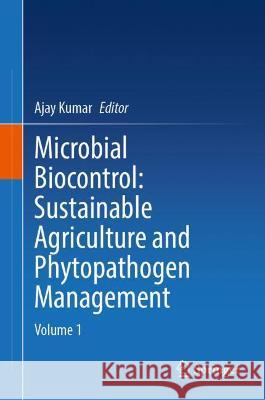Microbial Biocontrol: Sustainable Agriculture and Phytopathogen Management: Volume 1 » książka
Microbial Biocontrol: Sustainable Agriculture and Phytopathogen Management: Volume 1
ISBN-13: 9783030875114 / Angielski / Twarda / 2022
Microbial Biocontrol: Sustainable Agriculture and Phytopathogen Management: Volume 1
ISBN-13: 9783030875114 / Angielski / Twarda / 2022
(netto: 653,27 VAT: 5%)
Najniższa cena z 30 dni: 655,41 zł
ok. 22 dni roboczych
Bez gwarancji dostawy przed świętami
Darmowa dostawa!
This first volume of a two-volume work presents the manifold applications of beneficial microbes and microbiomes in plant growth promotion, in enhancing crop resilience and in control of phytopathogens through microbial antagonists. In-depth insights into latest technologies such as biopriming of seeds and soil inoculation of rhizosphere microorganisms are provided.The two-volume work “Microbial Biocontrol” introduces mechanisms of plant-microbe interactions and explores latest strategies of how microbes can be applied in biocontrol and management of plant pathogens, replacing chemical fertilizers and pesticides. The book covers different groups of microorganisms such as bacteria, fungi, but also the interplay of entire microbiomes, and reviews their specific benefits in crop growth promotion, in enhancing the plants’ tolerance against biotic and abiotic stress as well as in post-harvest management of various plant diseases. Novel tools such as CRISPR/Cas9 and microbe derived nanoparticles are also addressed besides the legal aspects of biocontrol applications.Today, rising global population and changing climatic conditions emerge as a major challenge for agronomist farmers and researchers in fulfilling the requirements of global food production. The conventional agricultural practices utilize undistributed use of chemical fertilizers and pesticides to enhance growth and yield of agricultural products and fresh foods, but their extensive and continuous use have led to a range of negative consequences on the food quality and safety, to environment as well as to human and animal health. Microbial biocontrol applications are presented as a solution, paving the way to a sustainable agriculture in compliance with the UN Sustainable Development Goals (SDG). The book addresses researchers in academia and agriculture.











